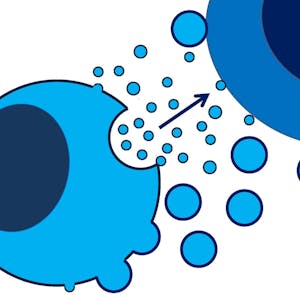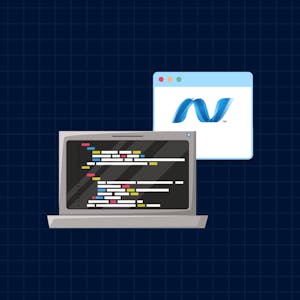Basics of Extracellular Vesicles
About this Course
This course aims to provide the basic knowledge about extracellular vesicles (EV) a generic term including exosomes, microvesicles, microparticles, ectosomes, oncosomes, prostasomes, and many others. It covers areas such as EV history, nomenclature, biogenesis, EV cargo as well as the release and uptake mechanisms, collection and processing prior to isolation, different isolation methods, characterization and quantification techniques. This course is divided into five modules. Module 1 is an introduction to the field and will cover the nomenclature and the history of EVs. Module 2 will focus on the biogenesis, release and uptake mechanisms of EVs as well as the different EV cargos (RNA, protein, lipids). In Module 3, we will focus on the collection and processing of cell culture media and body fluids such as blood, breast milk, cerebrospinal fluid and urine prior to isolation of EVs. Module 4 and 5 will present different isolation methods and characterization/quantification techniques, respectively. Here differential ultracentrifugation, size exclusion chromatography, density gradient, kit based precipitation, electron microscopy (EM), cryo-TEM, flow cytometry, atomic-force microscopy and nanoparticle tracking analysis will be presented. The recommended prerequisites are college-freshman-level biology and biochemistry. After a completed course you should be able to: + Discuss the nomenclature and subgroups of extracellular vesicles. + Describe the RNA, protein and lipid content of extracellular vesicles. + Describe the basic concepts about the most common isolation and characterization techniques and how these techniques are used in the EV field. + State the benefits and limitations of the most common isolation and characterization techniques for extracellular vesicles. + Explain the considerations that are important during the collection and isolation of EVs from different body fluid. + Describe the release and uptake mechanisms of extracellular vesicles All lectures are given in English. Each of the five modules will be followed by an exam. All exams will be in the format of multiple choice questions. The course is organized in collaboration between the International Society for Extracellular Vesicles (ISEV), University of California Irvine (USA), University of Gothenburg (Sweden) and Pohang University of Science and Technology (South Korea).Created by: University of California, Irvine

Related Online Courses
In the fast-paced and dynamic world of hospitality management, mastering the financial aspects of hotel operations is essential for success. \"Hospitality Management: Foundations of Hotel... more
This is the first of the three courses part of the Globalization, Economic Growth and Stability Specialization. This course will employ a non-technical approach to analyze how governments use... more
This comprehensive course equips learners with the skills and knowledge to handle and respond to a wide range of cybersecurity incidents. From foundational concepts in information security to... more
Acquire the expertise needed to construct robust, scalable, and secure applications using .NET technology through this comprehensive specialization. It consists of three courses:\\n\\nC# for .NET... more
Welcome to the Advanced Linear Models for Data Science Class 2: Statistical Linear Models. This class is an introduction to least squares from a linear algebraic and mathematical perspective.... more








